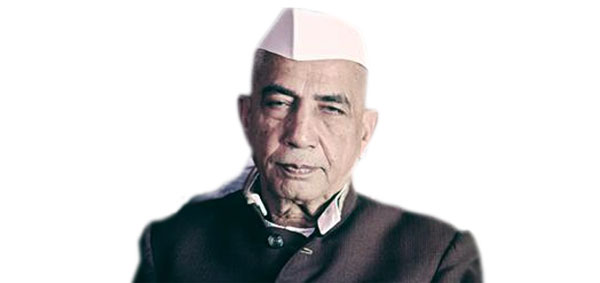
“The true India resides in its villages”
(Charan Singh)
Charan Singh, a true Gandhian, freedom fighter
and patriot, was the fifth prime Minister of India serving from
28 July 1979 until 14 January 1980.
He was born in a poor Jat family, on 23rd
December 1902, at Noorpur District of Uttar Pradesh. In 1928,
after receiving a Masters degree in Arts and LLB, Charan Singh
got himself enrolled as an advocate in Ghaziabad. In 1929, he
shifted to Meerut and joined Congress as part of Independence
Movement. In 1937, he was elected to the Legislative Assembly
from Chhaprouli constituency of Uttar Pradesh. Being a staunch
Gandhian, he was sent to jail several times during freedom struggle.
In 1952, he became the Revenue Minister of Uttar Pradesh and
took away the Zamindari system and brought about the land reform
act. Charan Singh opposed several economic policies of Jawaharlal
Nehru, then prime minister of Independent India. He left Congress
in 1967 to form his independent party known as the Bharatiya
Lok Dal. He became Chief Minister of Uttar Pradesh twice, in
1967, and later in 1970. During Emergency period, he was jailed
by Indira Gandhi. In 1977, he served as Deputy Prime Minister
of India under Morarji Desai's ministry. Later in 1979, with
the support of just sixty four MPs, he was sworn in as the Prime
Minister. But he could hold that post only for a short term
since Indira Gandhi's congress party withdrew their support.
Charan Singh holds the record of being the only Prime Minister
of India who did not face the Lok Sabha even for a single day.
Thereafter he headed the Opposition until his death on May 29,1987.
His memorial in New Delhi is named as Kisan Ghat due to his
association and support for farming communities in North India.
Charan Singh authored several books including 'Abolition of
Zamindari', 'Co-operative Farming X-rayed', 'India's Poverty
and its Solution', 'Peasant Proprietorship or Land to the Workers'
and 'Prevention of Division of Holdings below a Certain Minimum'.
(Updated on 3/6/2014)

